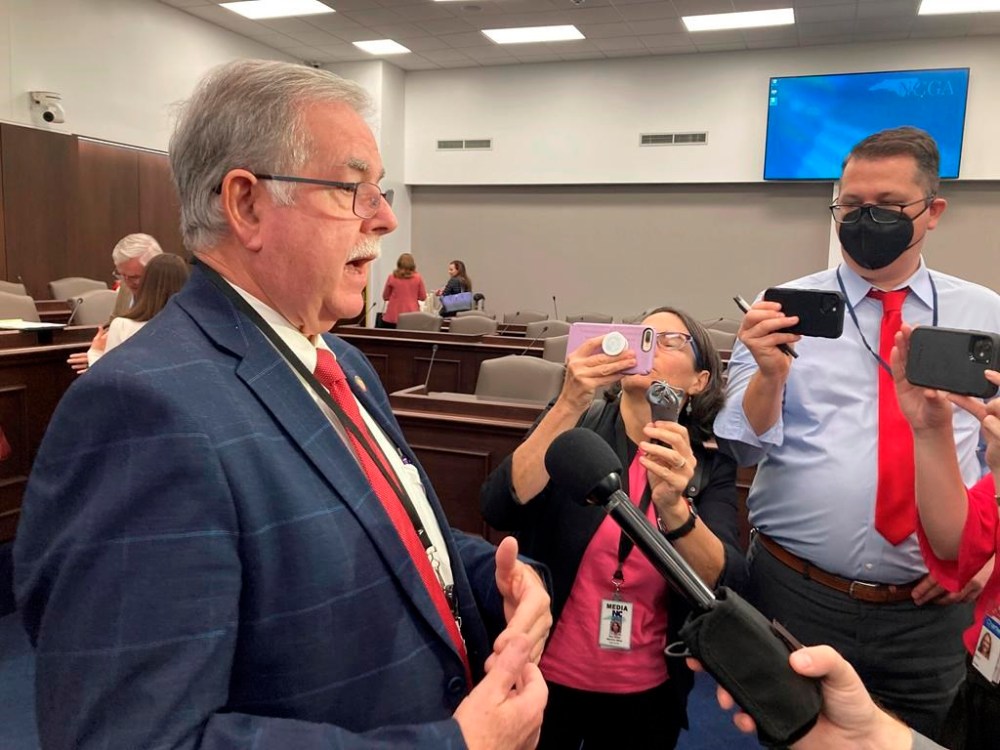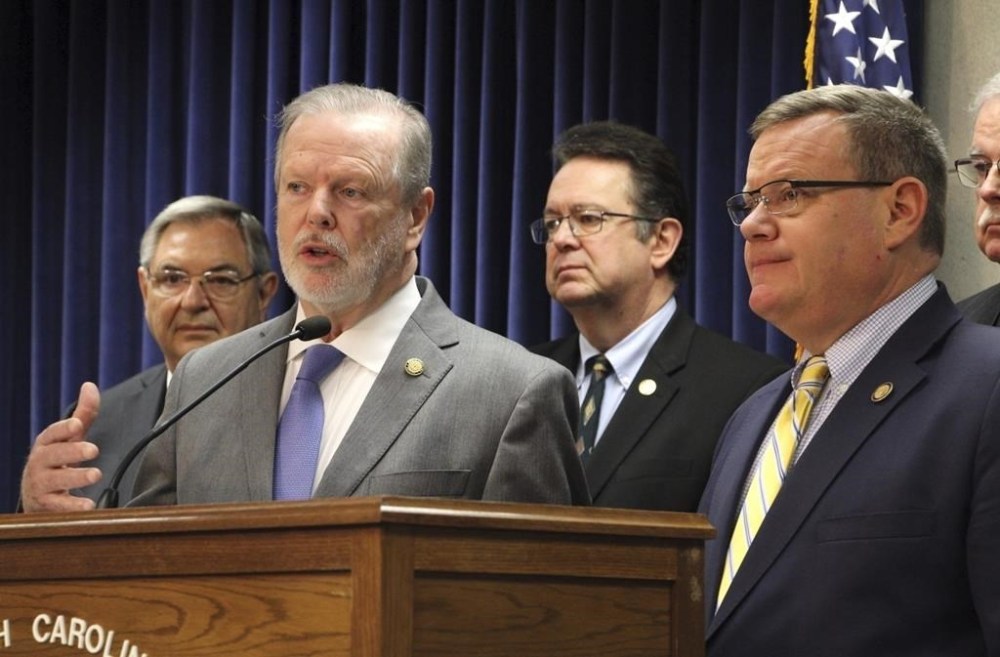North Carolina lawmakers nearing final Medicaid expansion OK
Advertisement
Read this article for free:
or
Already have an account? Log in here »
To continue reading, please subscribe:
Monthly Digital Subscription
$0 for the first 4 weeks*
- Enjoy unlimited reading on winnipegfreepress.com
- Read the E-Edition, our digital replica newspaper
- Access News Break, our award-winning app
- Play interactive puzzles
*No charge for 4 weeks then price increases to the regular rate of $19.00 plus GST every four weeks. Offer available to new and qualified returning subscribers only. Cancel any time.
Monthly Digital Subscription
$4.75/week*
- Enjoy unlimited reading on winnipegfreepress.com
- Read the E-Edition, our digital replica newspaper
- Access News Break, our award-winning app
- Play interactive puzzles
*Billed as $19 plus GST every four weeks. Cancel any time.
To continue reading, please subscribe:
Add Free Press access to your Brandon Sun subscription for only an additional
$1 for the first 4 weeks*
*Your next subscription payment will increase by $1.00 and you will be charged $16.99 plus GST for four weeks. After four weeks, your payment will increase to $23.99 plus GST every four weeks.
Read unlimited articles for free today:
or
Already have an account? Log in here »
Hey there, time traveller!
This article was published 22/03/2023 (961 days ago), so information in it may no longer be current.
RALEIGH, N.C. (AP) — An agreement to expand Medicaid in North Carolina neared final legislative approval Wednesday as the House agreed to a bipartisan plan to ease or eliminate regulations that block the opening of new hospital beds or operating expensive equipment.
Republican lawmakers had been skeptical for nearly a decade about accepting expansion, which originated from the 2010 federal Affordable Care Act.
But the House voted 95-21 for legislation stemming from a deal between House and Senate GOP leaders, announced three weeks ago, that would direct state health officials to accept Medicaid coverage for potentially 600,000 low-income adults.

Legislators also were convinced by an estimated extra $1.75 billion in cash over two years that Congress approved in a COVID-19 recovery law if North Carolina joined now.
One more affirmative House vote is needed Thursday before it goes to the desk of Democratic Gov. Roy Cooper, a longtime expansion advocate, for his likely signature. The Senate passed the final legislation by overwhelming margins last week.
North Carolina, one of 11 states that haven’t yet adopted expansion, currently has 2.9 million enrollees in traditional Medicaid coverage.
“Today marks an important day for so many North Carolina citizens,” said Rep. Donny Lambeth, a Forsyth County Republican, during Wednesday’s floor debate. “This has been a long, bumpy journey. But we’re here to make history and move North Carolina forward.”
Cooper doesn’t care for the North Carolina expansion bill language that says expansion can’t be enacted until a separate state budget law is approved in the months ahead. Republicans argue that it makes sense for the state to accept expansion at the same time they adjust the state’s conventional Medicaid program. But it also gives GOP leaders leverage to fill the budget with other unrelated items the governor may strongly oppose.
Democratic legislators like Rep. Carla Cunningham of Mecklenburg County had sought expansion for years. Cunningham, a registered nurse, said during the brief debate that she has been “waiting a good long time to get to the bittersweet end of this journey.”
“We’re almost there and can celebrate,” she said.

The state’s 10% share of expenses for Medicaid expansion recipients would be paid through hospital assessments. Hospitals also are expected to receive larger reimbursements for treating Medicaid patients through a federal program the state is requested to enter in the legislation.
The legislation also would scale back “certificate of need” rules that have required state health officials, for example, to sign off before hospital beds for mental health patients are opened or MRI machines are purchased. Senate Republicans insisted on such changes as part of any expansion deal — a requirement that meant talks idled in 2022. Negotiations resumed earlier this year.
Cooper and many lawmakers want to spend much of the additional $1.75 billion on mental health services.

